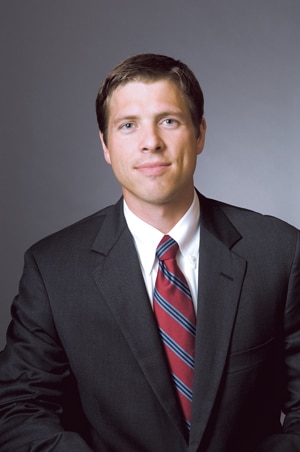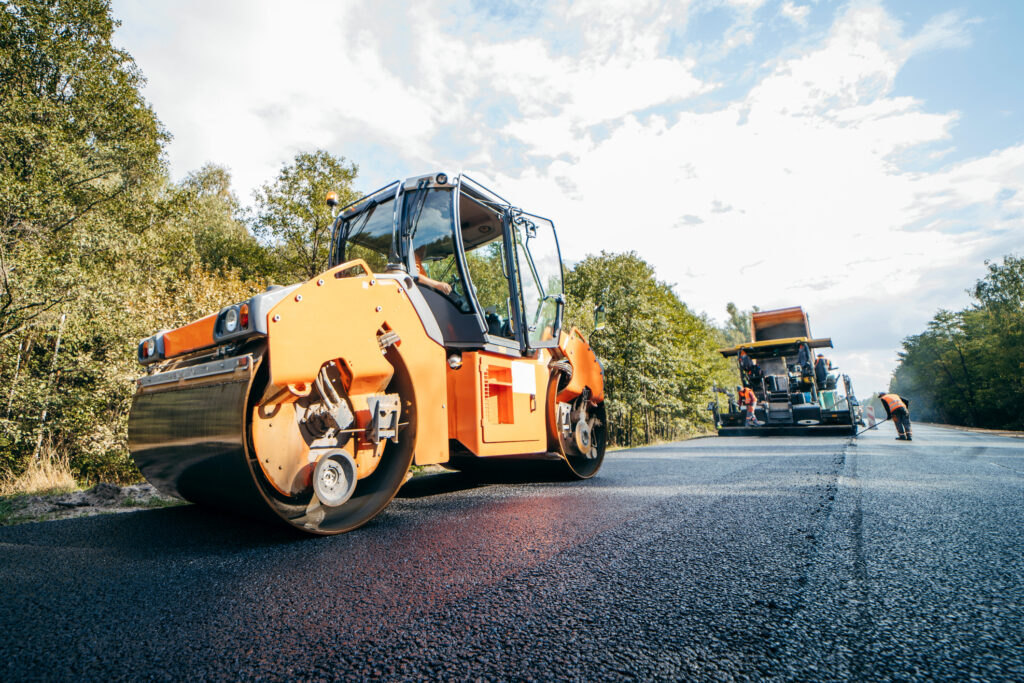A Closer Look: Ben McLean
CEO, Ruan Transportation Management Systems Inc.

PERRY BEEMAN Feb 20, 2015 | 12:00 pm
6 min read time
1,358 wordsBusiness Record Insider, TransportationBen McLean has risen through the ranks in one of Des Moines’ standout businesses, Ruan Transportation Management Systems Inc. Chairman John Ruan III is McLean’s father-in-law. McLean, 38, believes in a collaborative, empowering management style.
One of the reasons Ruan has been a mainstay business power in Des Moines, and many other locations, is its adaptability. Over the years, the company moved to make truckers’ trips short enough that they could return home at night. That has helped Ruan keep turnover far below industry standards.
The workers take pride in contributing to so many essential industries, from health care to manufacturing, McLean said.
Now, as the company looks to the future, the talk is of converting more rigs to burn natural gas instead of diesel, of further refinements tailored to meet the precise needs of clients, and of technological advances that will protect drivers at Ruan, and other companies, from danger by setting up automatic braking and other safeguards on trucks.
We chatted with McLean just a couple of weeks after he took over as CEO. His eager, thoughtful and comprehensive answers suggested that he’s well-matched for the new role and excited to settle in.
You’ve steadily climbed the ladder at Ruan Transportation Management Systems. How does your new role as CEO change your typical workday?
Fundamentally, this is a family business. I was brought to Des Moines to be part of the family succession plan. Our overriding accountability is people, safety and how they perform. It moves toward people being successful in serving our customers.
Can you describe the major elements of Ruan’s operations that fall under your purview?
We cover all the transportation and logistics operations within Ruan. What we do is dedicated contract carriage. The fleets we run are for many of the largest companies and brands in the world. We bring fleet, drivers, trucks and trailers. We move their fleet. We have 3,500 trucks. 7,100 trailers and 4,200 of the best drivers in the world. Altogether, we have 5,200 employees. We provide dedicated contract carriage. We partner long term with our customers. Our drivers are home most nights. They are able to be with their families. Ultimately that makes our turnover much lower.
A lot of our customers build their distribution centers within a 250-mile radius of the stores they serve. If we provide a dedicated fleet, that keeps us in that region.
We do warehousing as well. We inventory raw materials that will feed manufacturers.
What types of materials do the trucks carry?
We deliver a lot of carbon dioxide and oxygen and liquid nitrogen to hospitals and other facilities. We deal with raw materials and just-in-time manufacturing facilities. Ten to 15 years ago, we made investments in optimization and how freight moves. We do the work with our logistics. We are as efficient as possible. We will look at the orders, and based on time sensitivity and based on freight rates, it may go on rail, or less-than-truckload or in the air. We don’t do a whole lot on air. Our people build the systems and expertise to make sure that is done as efficiently as possible. Much of what we do is complex, multiple-stop deliveries.
It sounds as though you take on the whole transportation operation for many clients, is that right?
That is a quickly growing part of our business. We develop trusting relationships and we develop metrics that make it very transparent. Outsourcing logistics can be a big decision for many of our customers, but that is what our company was built to do and it frees them to focus on their core competencies and core business. It takes a lot of capital to build a logistics operation. We deliver great value.
What are the biggest changes coming to your industry?
There are many. There are many baby boomer retirements. We are feeling that in our drivers. Our turnover is less than 20 percent. The market in trucks averages over 100 percent. They are replacing the entire workforce every year. Now they are doing that in a challenging market. We are rolling well in this market.
We are seeing drivers’ wages increase. That will drive freight rates. That will make the career more attractive. Drivers can make a good living and send their kids to college. We invest in drivers. In a shortage like this, our investments make total sense.
Alternative fuels are another change. We are working on natural gas-powered trucks. With fracking, we have an incredibly large supply of natural gas within our nation. We have 100 trucks that use natural gas. We are experimenting with it, but we have proven the technology. We just need to make the decision on where they fit in the fleet.
There are safety improvements, too. Lane mitigation systems will apply the brakes if the truck leaves the lane.
Every new truck will have roll stability. That also will apply the brakes based on conditions. There are new audible lane departure warnings, and collision mitigation that uses radar that looks at objects in front of the truck and brakes to avoid collisions.
We replace our trucks about every five years.
What are your major goals for the company?
What keeps people in this industry and provides the rewards is we are a major player in the nation’s economy. We move a lot of food from farm to plant, from distribution center to store, from manufacturers to customers, We supply hospitals with oxygen. Our people have a strong sense of reward and satisfaction for our role in the economy. A goal is to successfully partner with customers. We are proud to serve them. Our goal is to add value to their supply chains and to make them successful. Beyond safety, our people are a priority. Our values come from a family business. Our values are closely aligned with the community. There has been an incredible number of companies that have grown Iowa.
Ruan is one of those companies that serve the community. It quickly becomes apparent to you how much safety needs to be pervasive in everything we do. We look at safety and our people as our top priority. If we are safe, and we take care of our people and we perform for our customers, our financial performance will follow.
How would you describe your management philosophy?
A lot of it is communication of what our values and priorities are. Our team needs to hear from the leadership. We value community. We value people. We are very collaborative. We are very flat. You go home every night and you see the tangible results of what you’ve done. We are not a top-down, hierarchical organization. We support leaders all over the company. In many cases, we are quite diverse. We have 200-plus locations all over the country. We are entrepreneurial in spirit.
What pet peeves do you have that all your longtime employees know?
It may be a personal weakness. Folks that work with me perhaps find me at times to be exhaustive in terms of publications. I like to be prepared. I probably have exhausted a person or two as we have prepared communications.
In your view, what is the best way to motivate employees?
I really think it builds upon management philosophy. People who are empowered are motivated. If we’ve laid out our values and they know what we stand for, and we recognize people who make those efforts and inspire the teams, that’s the most motivating. They know they are trusted to make decisions.
You can’t work all the time. What do you like to do when you are off the job, and truly unplugged?
With the rise of ever-connected communication, we stay plugged in quite often. We stay plugged in when we need to be plugged in, but I am deliberate when I’m going to be unplugged. I like to be with family and to support my kids. For fun, I like fly-fishing. I love to be on the water or in the mountains. I played basketball, and I like to be spectator now. I read a lot of different books about business, or about other interesting things.










